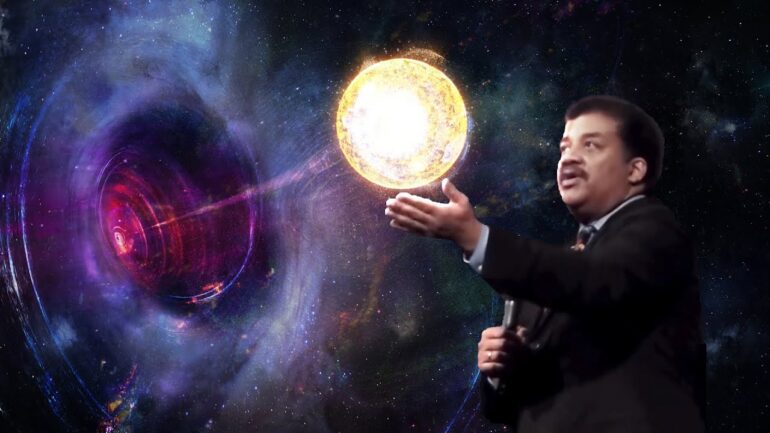TL;DR:
- Astrophysicist Neil deGrasse Tyson warns that AI’s development of fake videos and media could be catastrophic for the Internet.
- He suggests that AI’s ability to create convincing fakes might erode trust in the Internet, leading to its shutdown.
- Tech leaders are meeting with Vice President Kamala Harris to discuss concerns about AI implementation.
- Tyson dismisses calls for a pause in AI development, considering them unrealistic.
- He argues that instead of pausing, efforts should be focused on understanding and mitigating AI’s potential negative effects.
- Elon Musk and other tech leaders signed a letter urging a temporary halt in training AI systems more powerful than GPT-4.
- Tyson highlights the immediate threat of AI in its capability to fabricate and clone human voices, leading to scams and extortion.
- He emphasizes the need to address the malicious ways in which AI can be abused.
- Deepfakes, such as AI-generated images, videos, and voices, are becoming so realistic that distinguishing real from manipulated media is increasingly challenging.
- This raises concerns about trust in audio, image, and video content, including speeches from public figures.
Main AI News:
Astrophysicist Neil deGrasse Tyson has issued a dire warning regarding the implications of artificial intelligence, raising concerns that the proliferation of fabricated videos and other media could be the decisive blow to the Internet. In a recent episode of “The Fox News Rundown” podcast, the esteemed astrophysicist and author shared his reflections on the future of the global computer network.
Tyson mused, “A part of me wonders whether AI will produce such impeccable counterfeits that the public will lose all trust in the Internet, compelling us to shut it down entirely. It could serve as the final nail in the Internet’s coffin.” With a touch of melancholy, he continued, “The past three decades have witnessed a remarkable journey from the early 1990s to the 2020s, but now it is time to set our sights on the next frontier. Perhaps this will be AI’s most profound contribution to the Internet—an unequivocal vote of no confidence.”
These cautionary remarks coincide with a scheduled meeting between tech leaders and Vice President Kamala Harris at the White House to address concerns surrounding the implementation of this technology. However, despite prominent figures like Elon Musk advocating for a temporary halt in AI development due to safety concerns, Tyson dismisses such expectations as “wholly unrealistic.”
To emphasize his point, Tyson referenced the United Arab Emirates appointment of a Minister of AI, highlighting the global significance of artificial intelligence. “Countries all over the world, as indicated by a letter signed by numerous individuals, are invested in AI. I don’t believe this momentum will be halted or slowed down,” he explained. “Instead, what we should have done is acknowledge the rapid pace of advancement and redouble our efforts to anticipate the potential dangers and mitigate them.”
In March, Musk, Steve Wozniak, and other prominent tech leaders signed a letter authored by the Future of Life Institute and endorsed by over 1,000 individuals, calling for an immediate six-month pause on training AI systems that surpass the capabilities of GPT-4.
Despite widespread concerns regarding the potential of AI, Tyson points out its most imminent threat lies in its capacity to fabricate various elements, including human voices. Scammers have already exploited this technology to clone voices, perpetrating scams and extorting money. One victim from Arizona described this ordeal as “life-changing” and recounted it as the “worst day” of her existence.
“There exists an array of malicious and deceitful ways in which this technology can be abused,” Tyson asserted. He further posited, “Perhaps the consequences will be far more severe—engendering a level of skepticism that renders it impotent in our lives.”
Deepfakes, which encompass AI-generated images, videos, and voices, have become so realistic and readily available that soon people will struggle to differentiate between authentic and manipulated media, warned an image analyst interviewed by Fox News last month.
Hany Farid, a professor at the University of California, Berkeley’s School of Information, remarked, “When we find ourselves in a realm where any audio, image, or video can be tampered with, it raises the question of how we can place our trust in anything. Now, there is a lingering doubt whenever we witness the president, a candidate, a CEO, or even a reporter speak.”
Conlcusion:
The warnings and concerns raised by astrophysicist Neil deGrasse Tyson regarding the rise of artificial intelligence and its potential to create convincing fake media have significant implications for the market. The erosion of trust in the Internet due to AI-generated deep fakes could have far-reaching consequences for businesses operating in digital spaces.
It may become increasingly challenging for companies to establish and maintain credibility in a world where authentic content is easily manipulated. Safeguarding brand reputation and consumer trust will be paramount, necessitating the implementation of robust verification mechanisms and advanced technologies to detect and combat the spread of deceptive AI-generated media.
Additionally, businesses involved in AI development and implementation should prioritize addressing the potential negative impacts and ethical considerations associated with this technology. Adapting strategies to navigate this evolving landscape and build resilience against AI-driven disinformation will be essential for businesses to thrive in the future market environment.

